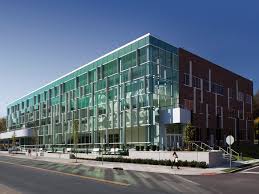Brain Health and the Aging Workforce
A free members-only eventFebruary 26 – February 27, 2024
Monday 11:00 am CT – Tuesday 1:00 pm CTNashville, TN
Meharry Medical CollegeCal Turner Family Center
1005 Dr DB Todd Jr Boulevard

The Baby Boomer generation makes up nearly thirty percent of the U.S. labor market, and a major transformation is afoot with about 10,000 people turning 65 each day for the next two decades. Long life spans, the need to keep socially active, and financial considerations are personal reasons for staying at work. What’s more, most employers covet the expertise and experience of older workers and the benefits of age-diverse teams in fostering innovation. With an aging workforce comes greater sensitivity to the role of brain health in employee performance. Debates about the mental acuity of our aged national political leaders are a prime example of the concerns attendant to brain vibrancy. Related to this, two out of three workers over the age of 45 say they have seen or experienced age discrimination, and the perception of age discrimination is much higher for women.
Brain health relates to our abilities to contribute productively at work and in our communities. This includes mental health, coping, and resiliency, as well as brain health practices that reduce cognitive decline and prevent neurodegenerative diseases such as Alzheimer’s disease and dementia. HERO Senior Fellow Paul Terry has designed this Think Tank to explore the role of employers in supporting the lifestyle factors like sleep, diet, stress management, social connections, and physical activity that impact emotional well-being and cognitive functioning. We will review the evidence on the impact of mental health support, cognitive training programs such as memory games and problem-solving tasks, and the role of mindfulness exercises and flexible work arrangements that empower employees to improve self-care of brain health.
The most common type of age discrimination is simply that of hearing negative comments about a worker’s age. We will examine this and other common forms of ageism experienced by workers. In our usual Think Tank fashion, we will plan structured times for HERO members to share their stories about their efforts to organize health and well-being initiatives responsive to the needs of their older associates.
Learning Objectives
After attending this Think Tank, participants will be able to:
- Explain the demographic shift in the U.S. labor market with the aging Baby Boomer generation and the implications for workplace health and well-being initiatives.
- Identify the professional, personal, and societal factors that contribute to delaying retirement among older workers.
- Describe case examples of organizations that have improved their organizational effectiveness in adapting to the needs of an aging workforce.
- Discuss common forms of ageism experienced by older workers and develop strategies to diminish age discrimination in the workplace.
- Evaluate the role of lifestyle factors, including sleep, diet, stress management, social connections, and physical activity, as they affect brain health and cognitive functioning in older employees.
- Assess the evidence and effectiveness of mental health support and cognitive training programs for improving the well-being and enhancing the cognitive abilities of aging workers.
Register Below – 8 CHES/MCHES Credits Available (must attend both days)
Sponsored by Health Enhancement Research Organization (HERO), a designated provider of continuing education contact hours (CECH) in health education by the National Commission for Health Education Credentialing, Inc. This program is designated for Certified Health Education Specialists (CHES) and/or Master Certified Health Education Specialists (MCHES) to receive Category I contact education contact hours. Provider ID#101039
Travel Information
 HERO’s 2024 Winter Think Tank will take place at the Meharry Medical College in the Cal Turner Family Center for Student Education (CTC), 2nd floor Grand Ballroom (AB).
HERO’s 2024 Winter Think Tank will take place at the Meharry Medical College in the Cal Turner Family Center for Student Education (CTC), 2nd floor Grand Ballroom (AB).
Hosting the meeting at Meharry Medical College gives you the freedom to choose a downtown Nashville hotel. We suggest you stay near the HERO team downtown in the Printer’s Alley area. The hotel suggestions below are in the middle of the action and walking distance to museums, restaurants, and more.
- The Capitol Hotel Downtown, Ascend Hotel Collection
- Homewood Suites by Hilton Nashville-Downtown
- Hotel Indigo Nashville – The Countrypolitan
- Fairlane Hotel
- Courtyard Nashville Downtown
- Sheraton Grand Nashville Downtown
Meals
Breakfast is on your own at the hotel. Lunch and snacks will be served at the Think Tank on both Monday and Tuesday.
Want to dine out at one of Nashville’s hottest restaurants with Think Tank colleagues? We are facilitating small group dinners and networking on Monday evening at downtown restaurants. There is a limit of 8-12 people per group, so please indicate your top choices from the restaurants below in the registration form. Key: $ – entrees under $30; $$ – entrees $30-40; $$$ – entrees $40-50; $$$$ – entrees over $50.
- Martin’s Bar-B-Que Joint – West Tennessee-style whole hog BBQ cooked to order. 410 4th Avenue South $*
- Peg Leg Porker – Award-winning, family-owned Tennessee BBQ with unforgettable Southern hospitality. 903 Gleaves Street $ – $$*
- Adele’s – Seasonal farm-to-table comfort food made from scratch in an open kitchen. 1210 McGavock Street $ – $$
- Sixty Vines – Wine country-inspired cuisine paired with 60 wines on their sustainable tap system. 5055 Broadway Place $ – $$$
- 5th and Taylor – Refined expressions of traditional fare pay homage to the American family meal. 1411 5th Avenue N $ – $$$
- Twelve Thirty Club – Justin Timberlake’s restaurant with three levels: a honky tonk bar, swanky supper club, and rooftop disco. 550 Broadway $ – $$$$
*”None of the places a BBQ aficionado would recommend do reservations.” – anonymous local. Nonetheless, these restaurants said that Monday is a slower night, and they should be able to accommodate a group.
